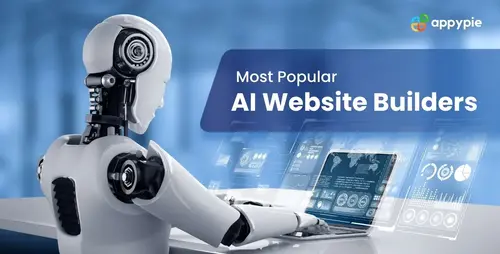In today’s fast-paced digital world, having a mobile app for your business or organization has become imperative. Whether you’re a small business owner, a non-profit organization, or even a church, having a presence on mobile devices can significantly boost your outreach and engagement. However, the process of app development has traditionally been complex, time-consuming, and expensive. That’s where AI-powered app builders like Appy Pie, a leading app builder platform, are changing the game.
The Evolution of App Builders
App builders have been around for a while, offering a DIY solution for those who lack coding skills or resources to develop a custom app from scratch. However, the advent of artificial intelligence has taken app development to a whole new level. AI-powered app builders leverage machine learning algorithms and natural language processing to automate various aspects of the development process, making it faster, more efficient, and accessible to a wider audience.
Appy Pie: Leading the AI Revolution
One of the key players in this space is Appy Pie, an innovative app builder platform that harnesses the power of AI to simplify app development for businesses and organizations of all sizes. What sets Appy Pie apart is its intuitive interface, extensive features, and AI-driven capabilities that cater to diverse needs, including niche markets like church app building.
Empowering Churches with Mobile Apps
For churches and religious organizations looking to connect with their members and communities in a digital age, having a dedicated mobile app can be a game-changer. With Appy Pie’s church app builder, creating a custom app tailored to the specific needs of a congregation has never been easier. From live streaming sermons and hosting virtual events to facilitating donations and sending push notifications, Appy Pie’s AI-powered platform offers a comprehensive solution for church app development.
AI in Action: Key Aspects
So, how exactly does AI come into play in app development with platforms like Appy Pie? Let’s delve into some of the key aspects:
1. Natural Language Processing (NLP)
Appy Pie’s AI engine utilizes NLP to understand user input and preferences. This means that users can simply describe the features they want in their app using natural language, and the platform’s AI algorithms will translate that into actionable steps, automatically generating the necessary code and functionalities.
2. Automated Design Assistance
Designing an app interface that is both visually appealing and user-friendly can be challenging, especially for those without a design background. Appy Pie’s AI-powered design assistance feature analyzes design trends and user preferences to suggest layout options, color schemes, and UI elements, helping users create professional-looking apps with minimal effort.
3. Code Generation and Optimization
Writing code from scratch is a daunting task for many aspiring app developers. With AI-powered code generation capabilities, platforms like Appy Pie automate the process of writing code based on user specifications. Moreover, AI algorithms continuously optimize the generated code for performance, security, and compatibility across different devices and operating systems.
4. Predictive Analytics
AI algorithms analyze user behavior and engagement patterns to provide insights that help app owners make data-driven decisions. For churches, this could mean understanding which sermons or events resonate most with their members, allowing them to tailor their outreach efforts accordingly and foster a stronger sense of community.
5. Personalized Recommendations
Through machine learning, Appy Pie’s AI engine learns from user interactions and preferences to deliver personalized recommendations for features and functionalities that may be relevant to a specific user’s needs. This level of customization ensures that each app created with Appy Pie’s platform is truly unique and tailored to its intended audience.
The rise of AI in app development has democratized the process, making it accessible to individuals and organizations across various industries. With platforms like Appy Pie leading the way, even niche markets like church app development can benefit from the power of AI to create engaging and user-friendly mobile experiences. As AI technology continues to advance, we can expect further innovations that will revolutionize the way we build and interact with mobile apps.
6. Enhanced Security Measures
AI-powered app builders like Appy Pie integrate advanced security measures to protect user data and sensitive information. Through machine learning algorithms, these platforms can detect and mitigate potential security threats in real-time, ensuring that the apps developed are resilient against cyber attacks and breaches. This reassures both app owners and users that their data is secure, fostering trust and credibility in the app ecosystem.
7. Streamlined Testing and Quality Assurance
Testing is a crucial aspect of app development to ensure functionality across different devices and operating systems. AI-driven app builders automate testing processes by simulating various usage scenarios and identifying potential bugs or performance issues. This not only speeds up the testing phase but also improves the overall quality of the app by addressing potential issues before deployment, leading to a smoother user experience.
8. Continuous Improvement through Feedback Analysis
AI algorithms analyze user feedback and app performance metrics to identify areas for improvement. By monitoring user reviews, ratings, and engagement metrics, app builders like Appy Pie can iteratively enhance their platform’s features and functionalities to better meet the evolving needs of their user base. This iterative approach to development ensures that apps created with AI-powered platforms remain competitive and relevant in the ever-changing digital landscape.
By incorporating these additional points, the article provides a comprehensive overview of how AI is revolutionizing the app development process and empowering businesses, organizations, and even churches to leverage mobile technology effectively.

